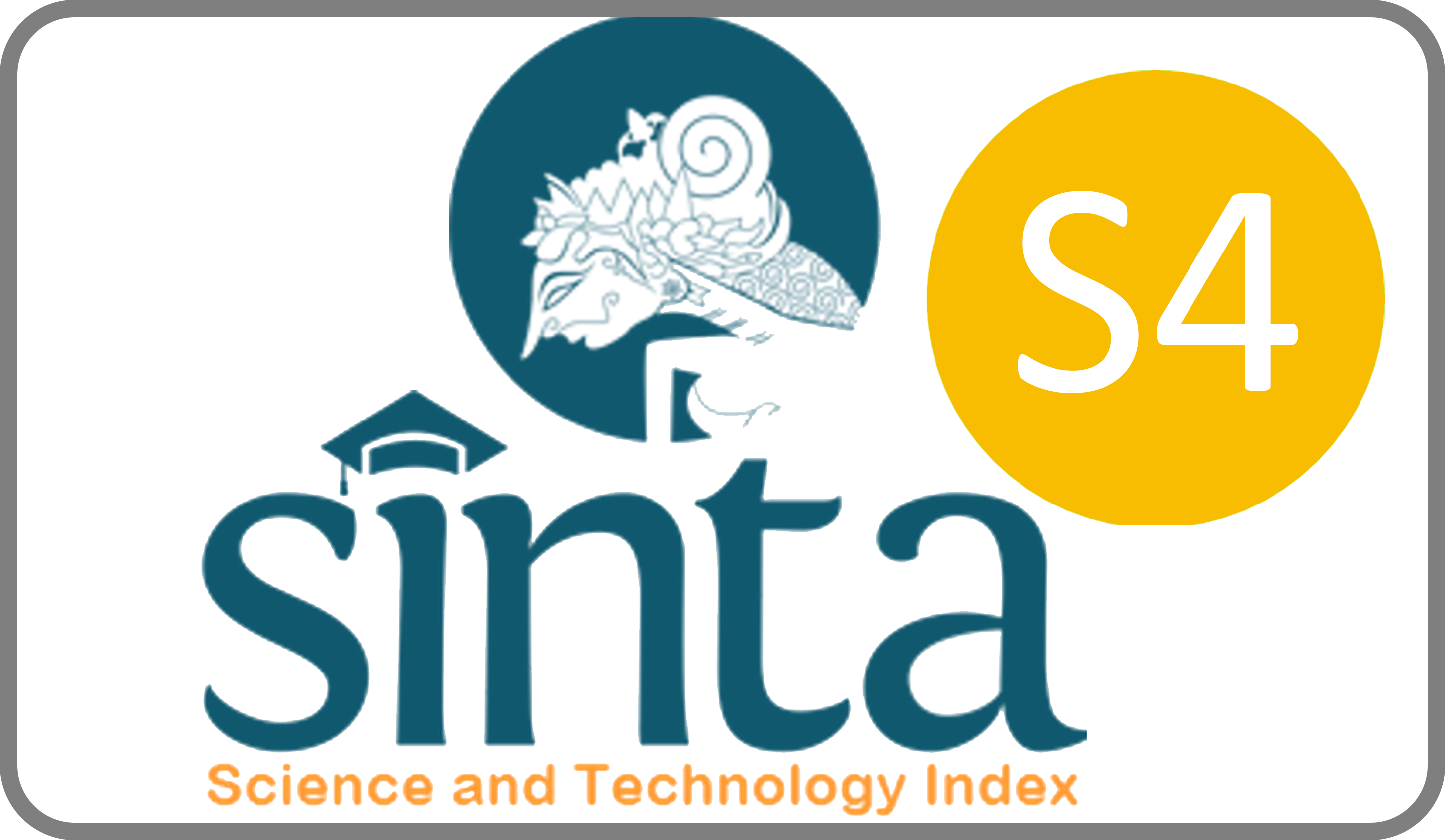COMMUNITY CAPACITY ENHANCEMENT IN COMMUNITY BASED TOURISM (CBT) MANAGEMENT IN SONGKHLA, THAILAND THROUGH EDUCATION AND TRAINING
Indonesia
Downloads
This community service aims to analyze the role of education and training in strengthening the capacity of communities in Songkhla City, Thailand, in managing the impacts of community-based tourism. Through qualitative methods including observation, document analysis, and Focus Group Discussion (FGD), this community service found that education and training programs have succeeded in improving community understanding and skills. In the Koh Yor Weaving community, the training provided enabled members to develop more innovative and attractive woven products for tourists, while maintaining local traditions. In the organic farming community, training encouraged the implementation of environmentally friendly agricultural practices that increased production sustainability. Meanwhile, the fishing community showed increased ability in natural resource management, reducing negative impacts on the environment. These findings confirm that education and training not only improve technical skills but also strengthen awareness of sustainable practices. In addition, active community participation in these programs shows a strong sense of ownership of the initiatives being implemented. Collaboration between the government, educational institutions, and non-governmental organizations is also an important factor in the success of these programs.
Ardoin N. M., Clark C., Kelsey E. 2013. “An exploration of future trends in environmental education research.” Environmental Education Research 19 (4): 499–520. doi.org/10.1080/13504622.2012.709823.
Bergman B. G. 2016. “Assessing impacts of locally designed environmental education projects on students’ environmental attitudes, awareness, and intention to act.” Environmental Education Research 22 (4): 480–503. https://doi.org/10.1080/13504622.2014.999225.
DESA, M. S. P. K. (2019). Pemodelan Sistem Informasi Layanan Masyarakat (Silam) Pada Kantor Desa Untuk Meningkatkan Pelayanan [Modeling of Public Service Information System (Silam) in Village Office to Improve Services].
Febriandhika, I., & Kurniawan, T. (2020). PENGEMBANGAN PARIWISATA MELALUI PEMBERDAYAAN MASYARAKAT DILIHAT DARI PERSPEKTIF IMPLEMENTASI KEBIJAKAN [TOURISM DEVELOPMENT THROUGH COMMUNITY EMPOWERMENT SEEN FROM THE PERSPECTIVE OF POLICY IMPLEMENTATION]. Jurnal Pariwisata Pesona/Jurnal Pariwisata Pesona, 5(1). https://doi.org/10.26905/jpp.v5i1.2793.
Jittungwattana, B. (2006). Sustainable tourism development. Bangkok: Place and Design limited.
Jouzi, S., H. Azadi, F. Taheri, K. Zarafshani, K. Gebrehiwot, S.V. Passel, dan P. Lebailly.. 2016. "Organic Farming and Small-Scale Farmers: Main Opportunities and Challenges." Ecological Economics 132 (2017): 144-154. doi.org/10.1016/j.ecolecon.2016.10.016.
Pelling, M., Manuel-Navarrete, D., & Redclift, M. (2012). Climate change and the crisis of capitalism. In Climate Change and the Crisis of Capitalism (pp. 1-17). Routledge.
Pretty, J. N., Noble, A. D., Bossio, D., Dixon, J., Hine, R. E., Penning de Vries, F. W., & Morison, J. I. (2006). Resource-conserving agriculture increases yields in Developing Countries.
Rachma, N. dan A.S. Umam. 2020. "Pertanian Organik Sebagai Solusi Berkelanjutan di Era New Normal [Organic Farming as a Sustainable Solution in the New Normal Era]." Transformatif: Jurnal Pembelajaran Pemberdayaan Masyarakat 1 (4): 328-338. doi.org/10.33474/jp2m.v1i4.8716.
Reed, M. S., Graves, A., Dandy, N., Posthumus, H., Hubacek, K., Morris, J., ... & Stringer, L. C. (2009). Who's in and why? A typology of stakeholder analysis methods for natural resource management. Journal of Environmental Management, 90(5), 1933-1949.
Saputra, G.B., Muksin dan M. Muspita. 2018. "Pengembangan Agrowisata di Kecamatan Ledokombo, Kabupaten Jember [Agrotourism Development in Ledokombo District, Jember Regency]." Jurnal Ekonomi Pertanian dan Agribisnis (JEPA) 2 (4): 325-331. doi.org/10.21776/ub.jepa.2018.002.04.7.
Smith, A., & Stirling, A. (2010). The politics of social-ecological resilience and sustainable socio-technical transitions. Ecology and Society, 15(1).
Sripotchanart, V. (n.d.). The Impacts of Tourism on Koh Yor community, Tambon Koh Yor, Muang district, Songkhla province. Medias. http://tourismlibrary.tat.or.th/medias/.
Sukhonthachat, W. (2019). Community Development in Songkhla Municipality, Thailand. University of Thailand Press.
Suwannanon, (2015). Challenges and Opportunities in Community Development in Songkhla, Thailand. Journal of Community Service, 12(2). https://doi.org/10.12340/jcs.v12i2.1234.
The official website of Tourism Authority of Thailand. (n.d.). Retrieved from https://www.tourismthailand.org/Destinations/Provinces/Songkhla/353.
Usnan. 2021. "Meningkatkan Peran Pemuda Dalam Pembangunan Lingkungan Melalui Tugas Sebagai Ketua RT [Increasing the Role of Youth in Environmental Development Through Duties as Neighborhood Association Chairperson]." Transformatif: Jurnal Pengabdian Masyarakat 2 (1): 87-100. doi.org/10.22515/tranformatif.v2i1.3336.
Wulansari, W., & Hidayat, B. (2023). Dampak Penguatan Layanan Kesehatan Primer Negara Thailand: Literatur Review [Impact of Strengthening Primary Health Care Services in Thailand: Literature Review]. Syntax Literate; Jurnal Ilmiah Indonesia, 8(6), 4052-4064.
Copyright (c) 2024 Briliani Putri Pijar Pratiwi, Alessandro Kartina, Firnanda Hady Wardhana, Gita Alya Hartono, Inez Tasya Brilliant, Muhammad Ilham Arrasyid, Nabila Putri Siswandini, Naufal Izzuddin, Naura Khalilah Sandrina, Raisa Jawda Azzam

This work is licensed under a Creative Commons Attribution-ShareAlike 4.0 International License.
JLM by Unair is licensed under a Creative Commons Attribution-ShareAlike 4.0 International License.
1. The journal allows the author to hold the copyright of the article without restrictions.
2. The journal allows the author(s) to retain publishing rights without restrictions
3. The legal formal aspect of journal publication accessibility refers to Creative Commons Attribution Share-Alike (CC BY-SA).
4. The Creative Commons Attribution Share-Alike (CC BY-SA) license allows re-distribution and re-use of a licensed work on the conditions that the creator is appropriately credited and that any derivative work is made available under "the same, similar or a compatible license”. Other than the conditions mentioned above, the editorial board is not responsible for copyright violation.


















